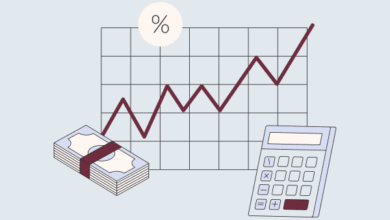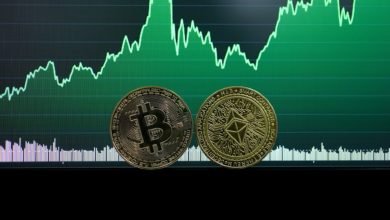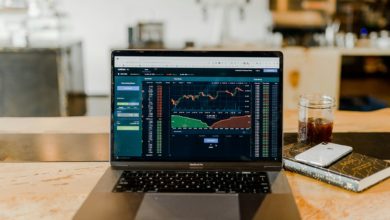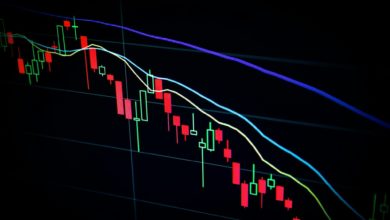Stock Market Today: Dow Leads Gains as Inflation Data Hits Estimates, Tariffs Loom

US stocks traded higher on Friday as investors' concerns were soothed by an inflation reading that matched expectations, while digesting fresh tariffs from President Trump and poor consumer sentiment. The Dow Jones Industrial Average (DJI) rose about 0.8%, the S&P 500 (GSPC) added 0.5%, and the Nasdaq Composite (IXIC) climbed 0.3% after three straight sessions of losses.
The rebound came despite growing uncertainty in Washington and on the global trade front. Markets took a late-morning dip before regaining steam, buoyed by relief that inflation didn’t surprise to the upside — though concerns over tariffs, consumer confidence, and a potential government shutdown continue to hang over sentiment.
Market Movers:
- Boeing (BA) jumped more than 4% after the FAA said it will allow the company to resume conducting its own final safety checks on 737 Max jets, signaling confidence in Boeing’s improved oversight. Shares also got a lift from two major airline deals: Turkish Airlines ordered 75 Dreamliners and Norwegian Air ordered 30 737-8 aircraft.
- Crinetics Pharmaceuticals (CRNX) surged 23% after winning FDA approval for Palsonify (paltusotine) as a first-line treatment for adults with acromegaly. The once-daily oral drug, supported by strong Phase 3 trial data, is set to launch in early October.
- Intel (INTC) climbed 4% and GlobalFoundries (GFS) rallied 8% on reports that the Trump administration may require U.S. companies to manufacture as many chips domestically as they import. The proposal, if implemented, would mark a major shift in industrial policy, potentially adding tariffs for firms that don’t meet the 1:1 ratio and fueling optimism for domestic producers.
- Boeing (BA) gained 4% as the FAA is reportedly set to restore the company’s authority to perform final safety checks on 737 Max jets and allow an increase in monthly production from 38 to 42 aircraft.
- Concentrix (CNXC) plunged 11% after posting weaker-than-expected Q3 earnings despite in-line revenue. Profitability slipped with margins contracting, while Q4 EPS guidance came in well below Wall Street estimates, raising concerns about near-term execution.
- Iris Energy (IREN) fell 10% after JPMorgan downgraded the stock to Underweight from Neutral, warning current valuations assume an unprecedented >1 GW colocation deal at its Sweetwater site. While possible over time, analysts see greater downside risk than upside potential.
- CleanSpark (CLSK) dropped 9% as JPMorgan cut its rating to Neutral from Overweight and trimmed its price target. The bank argued that shares already reflect the company’s aggressive 50 EH/s expansion and said further clarity on its high-performance computing strategy is needed to justify additional gains.
Inflation in Focus
The August Personal Consumption Expenditures (PCE) index, the Fed’s preferred inflation gauge, showed “core” prices rising 2.9% year-over-year and 0.2% month-over-month. Both figures were in line with economists’ expectations, helping to ease fears that inflationary pressures might accelerate again. While the level remains above the Fed’s 2% target, markets saw the report as keeping the door open for another rate cut later this year.
Economists noted that the reading reinforces the sense that inflation is sticky but not worsening. With next week’s jobs report on deck, investors are increasingly confident the Fed will stay on course for a policy adjustment in late October.
Tariffs and Trade Uncertainty
Even as inflation steadied, the White House introduced fresh tariffs that rattled global markets. President Trump announced a 100% levy on imported branded drugs from companies that do not build manufacturing plants in the US, alongside steeper tariffs on heavy trucks and furniture imports set to begin October 1. Shares of international drugmakers fell on the news, while trade tensions added to existing unease about global growth.
The tariff salvo compounds uncertainty for investors already weighing the sustainability of this year’s rally. AI-driven momentum has lifted equities to record highs, but the prospect of higher consumer costs and retaliatory trade actions could pressure both corporate profits and household spending.
Consumer Sentiment Dips
The University of Michigan’s consumer sentiment survey showed Americans growing more pessimistic about the economy in September. The index fell to 55.1, down from 58.2 in August and well below year-ago levels. Respondents cited frustration with persistent high prices and concerns about tariffs, reflecting growing strain on household finances.
Notably, sentiment diverged by political affiliation and wealth. Households with larger stock holdings remained relatively upbeat, while those with smaller or no equity investments saw sharper declines in confidence. Inflation expectations were mixed, with short-term views easing slightly but long-term forecasts edging higher — a signal that Americans are still wary of sticky prices.
Looking Ahead
Wall Street will turn its focus to next week’s labor market data, which could cement expectations for a Fed rate cut at the late October meeting. In the near term, investors must also contend with the October 1 tariff deadline and a looming government shutdown, both of which could spark volatility. With Big Tech’s rally cooling and trade tensions escalating, markets face a delicate balancing act heading into the final stretch of September.




